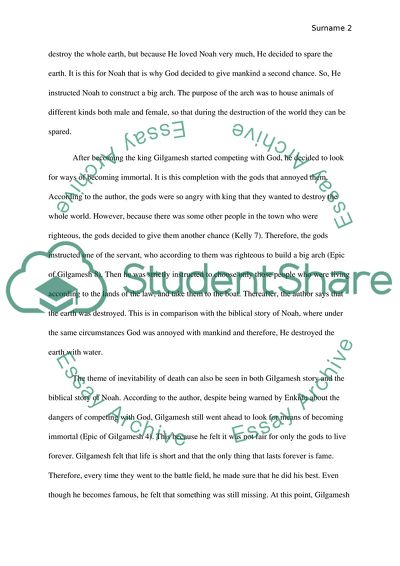Cite this document
(“What is the Gilgamesh Epic or Stories and how does it compare with the Research Paper”, n.d.)
What is the Gilgamesh Epic or Stories and how does it compare with the Research Paper. Retrieved from https://studentshare.org/religion-and-theology/1634769-what-is-the-gilgamesh-epic-or-stories-and-how-does-it-compare-with-the-biblical-account-of-the-flood
What is the Gilgamesh Epic or Stories and how does it compare with the Research Paper. Retrieved from https://studentshare.org/religion-and-theology/1634769-what-is-the-gilgamesh-epic-or-stories-and-how-does-it-compare-with-the-biblical-account-of-the-flood
(What Is the Gilgamesh Epic or Stories and How Does It Compare With the Research Paper)
What Is the Gilgamesh Epic or Stories and How Does It Compare With the Research Paper. https://studentshare.org/religion-and-theology/1634769-what-is-the-gilgamesh-epic-or-stories-and-how-does-it-compare-with-the-biblical-account-of-the-flood.
What Is the Gilgamesh Epic or Stories and How Does It Compare With the Research Paper. https://studentshare.org/religion-and-theology/1634769-what-is-the-gilgamesh-epic-or-stories-and-how-does-it-compare-with-the-biblical-account-of-the-flood.
“What Is the Gilgamesh Epic or Stories and How Does It Compare With the Research Paper”, n.d. https://studentshare.org/religion-and-theology/1634769-what-is-the-gilgamesh-epic-or-stories-and-how-does-it-compare-with-the-biblical-account-of-the-flood.


